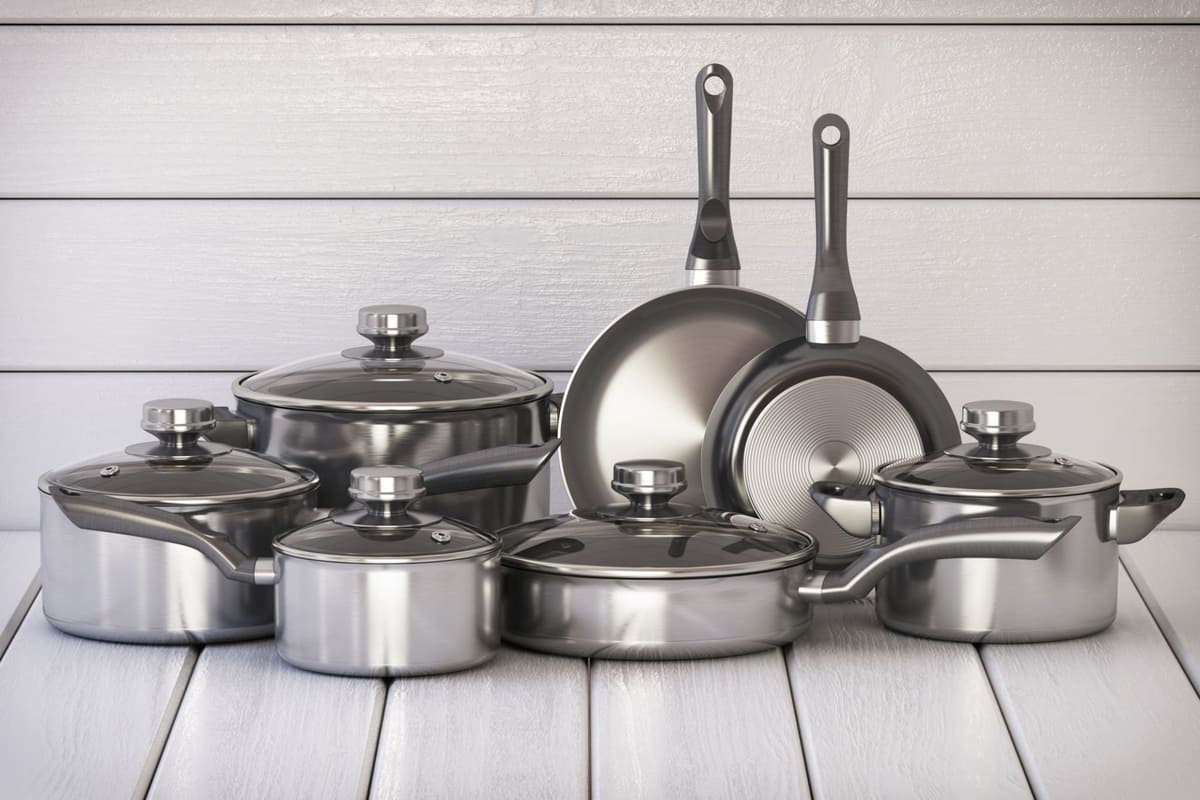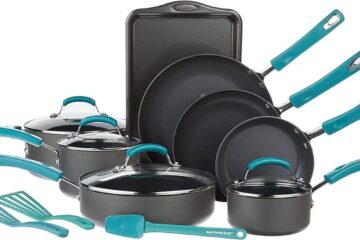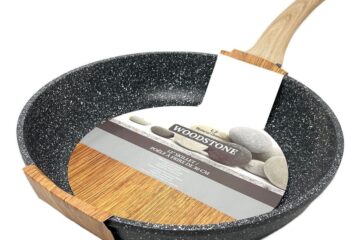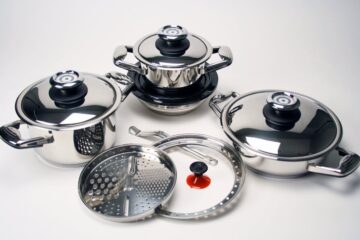Aluminum cookware is a popular choice for many home cooks due to its affordability, light weight, and excellent heat conductivity. However, concerns have been raised about the safety of cooking with aluminum due to its potential to leach into food and accumulate in the body.
While aluminum is a naturally occurring element and is present in many foods and products, studies have shown that excessive exposure to aluminum can have negative effects on health. Some studies have suggested a link between aluminum exposure and Alzheimer’s disease, although the evidence is not conclusive. Additionally, aluminum exposure has been linked to kidney problems and bone disorders. As a result, many people are questioning whether it is safe to use aluminum cookware for cooking.
What is Aluminum Cookware?
Aluminum cookware is a type of cookware made from aluminum metal. It is a popular choice for many people because it is lightweight, inexpensive, and conducts heat quickly and evenly. Aluminum cookware is commonly used for frying, sautéing, and boiling.
Aluminum cookware can come in different forms, such as:
- Uncoated aluminum: This is the most basic type of aluminum cookware. It is made from pure aluminum and is not coated with any other material. Uncoated aluminum is prone to scratching and can react with acidic foods, which can cause the metal to leach into the food.
- Anodized aluminum: This type of aluminum cookware has a protective layer of aluminum oxide on its surface. Anodization makes the surface of the cookware more durable and scratch-resistant. Anodized aluminum cookware is also non-stick and conducts heat quickly and evenly.
While aluminum cookware has its benefits, there are also concerns about its safety. Some people worry that cooking with aluminum cookware can cause aluminum to leach into the food, which can be harmful to health. However, the scientific evidence on this topic is mixed, and there is no consensus on whether aluminum cookware is safe or not.
To address these concerns, some manufacturers have started producing aluminum cookware with non-stick coatings that are free from PFOA and PFOS, which are harmful chemicals found in some non-stick coatings. However, it is important to note that non-stick coatings can also break down over time and release harmful chemicals into the food.
Is Aluminum Cookware Safe?
Aluminum is the most common metal found in cookware due to its excellent heat conductivity and affordability. However, there has been some concern about whether aluminum cookware is safe to use. In this section, we will explore the potential health risks associated with using aluminum cookware.
Aluminum and Health
Aluminum is a naturally occurring metal that is found in soil, water, and air. It is also present in many foods and beverages, such as tea, coffee, and some antacids. While the human body needs a small amount of aluminum to function properly, excessive exposure to aluminum can be harmful.
According to the Agency for Toxic Substances and Disease Registry (ATSDR), the amount of aluminum that people are exposed to through food, drink, and the use of aluminum pots and pans is very small and not harmful. However, some studies have suggested that long-term exposure to high levels of aluminum may be linked to health problems such as Alzheimer’s disease, kidney damage, and bone disorders.
Aluminum and Food
When cooking with aluminum pots and pans, there is a risk that small amounts of the metal can leach into the food. The amount of aluminum that leaches into the food depends on various factors such as the acidity of the food, cooking time, and temperature.
To reduce the amount of aluminum that leaches into the food, it is recommended to avoid cooking highly acidic foods, such as tomatoes, in aluminum cookware. Instead, consider using stainless steel, cast iron, or anodized aluminum cookware.
Aluminum and Cooking Methods
Some cooking methods, such as boiling or simmering, can increase the amount of aluminum that leaches into the food. On the other hand, cooking methods that involve less water, such as sautéing or stir-frying, can help reduce the amount of aluminum that leaches into the food.
It is also important to avoid using aluminum cookware that is scratched or pitted as this can increase the amount of aluminum that leaches into the food.
Alternatives to Aluminum Cookware
When it comes to cookware, there are several alternatives to aluminum that can be used. These include stainless steel, cast iron, and ceramic cookware.
Stainless Steel Cookware
Stainless steel cookware is a popular choice for many home cooks. It is durable, non-reactive, and easy to clean. Stainless steel does not contain any harmful chemicals or toxins, making it a safe option for cooking. It is also resistant to scratches and dents, making it a long-lasting option.
One of the drawbacks of stainless steel cookware is that it is not a good conductor of heat. This means that it may take longer to heat up and may not distribute heat evenly. However, some stainless steel cookware is designed with a copper or aluminum core, which can help improve its heat conductivity.
Cast Iron Cookware
Cast iron cookware is another popular alternative to aluminum. It is durable, conducts heat well, and can be used on the stovetop or in the oven. Cast iron cookware is also non-reactive, meaning it will not leach any harmful chemicals into your food.
One of the benefits of cast iron cookware is that it can be seasoned, which creates a natural non-stick surface. This makes it a great option for cooking foods that tend to stick, such as eggs or pancakes. Cast iron cookware does require some maintenance, however, as it needs to be seasoned regularly and should not be cleaned with soap.
Ceramic Cookware
Ceramic cookware is a newer option that has become increasingly popular in recent years. It is made from natural materials and is non-reactive, making it a safe option for cooking. Ceramic cookware is also non-stick, which makes it easy to clean.
One of the benefits of ceramic cookware is that it comes in a variety of colors and designs, which can add a pop of color to your kitchen. However, ceramic cookware can be fragile and may chip or crack if dropped. It is also not a good conductor of heat, so it may take longer to heat up.
How to Properly Use and Care for Aluminum Cookware?
When used and cared for properly, aluminum cookware can be a safe and effective choice for your kitchen. Here are some tips on how to properly use and care for your aluminum cookware:
Cleaning Aluminum Cookware
To clean aluminum cookware, use hot, soapy water and a soft sponge or cloth. Avoid using abrasive cleaners or scouring pads, as they can scratch the surface of the cookware. If there are stubborn stains or burnt-on food, soak the cookware in hot, soapy water for a few minutes before cleaning.
For tougher stains, you can use a solution of white vinegar and salt, or a commercial copper cleaner. Rinse the cookware thoroughly after cleaning to remove any residue.
Storing Aluminum Cookware
When storing aluminum cookware, make sure it is completely dry before putting it away. Store the cookware in a dry, cool place, away from any heat sources or direct sunlight. Avoid stacking heavy items on top of the cookware, as this can cause scratches or dents.
Avoiding Scratches and Dents
To avoid scratches and dents on your aluminum cookware, use plastic or wooden utensils instead of metal ones. Metal utensils can scratch the surface of the cookware, which can lead to the aluminum leaching into your food.
Avoid using acidic foods, such as tomatoes or citrus juices, in uncoated aluminum cookware. The acid can cause the aluminum to leach into your food, which can affect the taste and texture of your food.
Conclusion
In conclusion, aluminum cookware is a popular choice for many households due to its affordability, durability, and even heat distribution. However, it is important to be aware of the potential risks associated with using this type of cookware.
While some studies have suggested a link between aluminum exposure and Alzheimer’s disease, the amount of aluminum that leaches into food from cookware is generally considered to be minimal and not harmful. Additionally, the body is able to naturally eliminate small amounts of aluminum that are ingested.
To minimize any potential risks, it is recommended to avoid using uncoated aluminum cookware with acidic foods such as tomatoes and citrus juices. Instead, consider using coated or anodized aluminum cookware, which provides a protective layer that prevents leaching.
Ultimately, the decision to use aluminum cookware is a personal one that should be based on individual preferences and needs. By taking the necessary precautions and being mindful of the potential risks, it is possible to safely enjoy the benefits of aluminum cookware in the kitchen.




